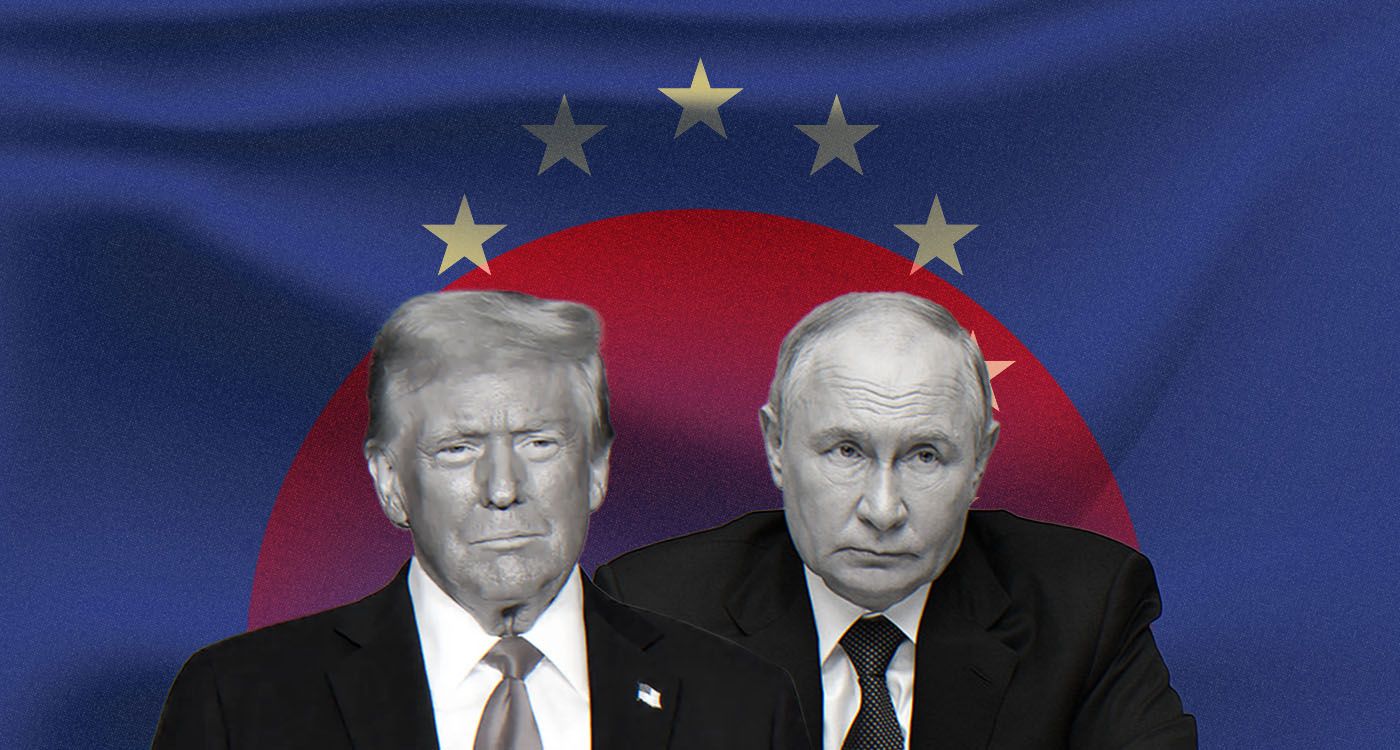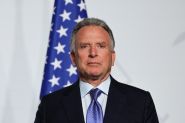- Home
- Middle East
- The European Union Overshadowed by 'Pax Americana'

The announcement of direct talks between US President Donald Trump and Russian President Vladimir Putin to end the war in Ukraine marks a major geopolitical shift. By deliberately sidestepping the European Union (EU), this move signals a strategy to weaken Europe’s influence, despite its long-standing role in the Ukrainian crisis. Here’s how Donald Trump is isolating the EU in this process.
Pax Americana
The “Pax Americana” (Latin for “American peace”) refers to the era of relative global stability following World War II, during which the United States held a dominant influence over international affairs, shaping and maintaining the world order. Donald Trump announced that he and Vladimir Putin had agreed to launch “immediate” negotiations to end the conflict during a 90-minute phone call. The two leaders are even considering a meeting in Saudi Arabia, further underscoring a mediation effort outside of Europe.
This approach sidelines Europe entirely, despite the EU having been a key supporter of Kyiv since 2022. Reactions were swift: the German and Belgian defense ministers criticized the US for making “concessions” to Moscow “before negotiations even began” and called for a European “wake-up” in response to this marginalization.
Under the Biden administration, the US and NATO maintained that Ukraine’s membership in the Alliance was “inevitable.” However, Donald Trump is reversing this stance. Defense Secretary Pete Hegseth called Ukraine’s NATO accession “unrealistic,” effectively aligning Washington with Russian demands. Furthermore, Trump stated that a return to pre-2014 borders, including Crimea, was “unlikely,” undermining Kyiv’s territorial claims, which the EU has strongly supported. This shift in strategy reflects a broader effort to redefine US priorities, often at Europe’s expense. It is worth noting that the US contributes 16% to NATO’s budget. This substantial financial input grants Washington considerable influence over the Alliance’s strategic decisions.
EU: A Concerned Bystander
Caught off guard, European leaders are scrambling to react. NATO Secretary General Mark Rutte emphasized the need to "closely involve Ukraine" in the negotiations, while six European countries demanded a role in any discussions. German Chancellor Olaf Scholz rejected a "forced peace" for Kyiv, implicitly criticizing Donald Trump's unilateral approach. Belgian Defense Minister Theo Francken also noted that the US conditions serve as a “wake-up call,” urging Europe to strengthen its military autonomy. These reactions highlight a divided and concerned Europe, gradually sidelined from key decisions. By bypassing the EU, Donald Trump risks undermining NATO's credibility and legitimizing Russia’s territorial gains. Although Trump has spoken with Ukrainian President Volodymyr Zelensky, he has avoided calling him a “full participant” in the negotiations, leaving Ukraine’s future role uncertain. A peace agreement without the EU could set a dangerous precedent, encouraging other powers to bypass multilateral mechanisms and further weakening the international system.
Faced with this marginalization, the EU is forced to rethink its stance. Belgium has already announced a plan to dedicate 2% of its GDP to defense, a trend that could spread to other European countries. Europeans may have to establish their own communication channels with Moscow or Kyiv to avoid being completely excluded from key decisions. This situation could accelerate the development of a more autonomous Europe, both militarily and diplomatically. The lesson is harsh: in diplomacy, there is no room for those who are absent. By orchestrating a duo reminiscent of Yalta 2.0, Donald Trump and Vladimir Putin are not just redrawing Ukraine’s borders, but also redefining the boundaries of European influence. The question remains whether this historic snub will awaken the EU from its strategic slumber… or cement its role as a bystander in a world where only giants shape history.
Read more




Comments